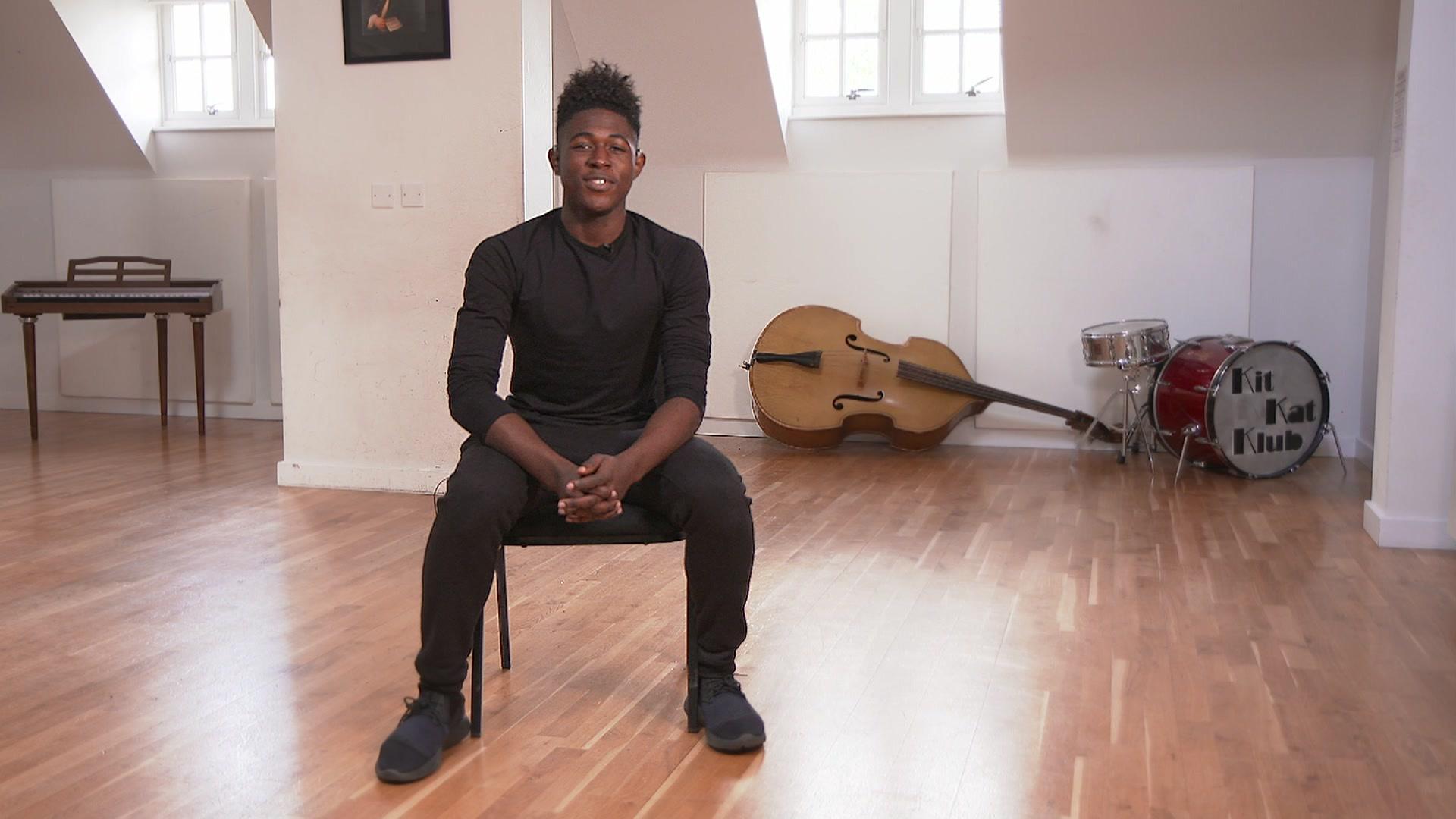Subtitles in cinema: ‘More needs to be done for deaf audiences’
- Published
- comments
Deaf cinema: 'Why I want more subtitled screenings'
Dan loves films but says he rarely goes to the cinema because of the lack of screenings. He wants cinemas to do more for people who are deaf or hard of hearing.
Dan is deaf. He says there are very few subtitled screenings at weekends - making it really hard for him to see the films he loves with friends.
Subtitled screenings describe what is being said or happening in the film using text along the bottom of the screen.
They help people understand what is happening in the film.
What is cinema like for deaf people?
Although Dan has a hearing aid, it doesn't allow him to hear the same as people who aren't hard of hearing.
A hearing aid amplifies all sounds, so Dan says when a film has lots of talking over loud noises or lots of people talking at once, it can be very confusing.
A hearing aid is made of a microphone, amplifier and receiver. The microphone picks up sounds around the wearer and turns them into electrical signals which are then made louder. The electrical signals are then converted back to sound and the receiver sends the amplified sounds into the ear through the earmould. (From National Deaf Children's Society)
That's why he wants there to be more subtitled screenings available in cinemas. He says it is a lot easier to follow the plot of films when there are subtitles.
For example, Dan was invited to the cinema with friends and then he found out the film wouldn't be subtitled.
Dan says he can follow some films without subtitles, but not the one his friends wanted to see. So he couldn't go.
"When I saw the title, I was like 'there's no way' so I just had to turn it down"
"I missed out the opportunity of going to the cinema with my friends and watching the film on the big screen with really good audio and subtitles" he said.
If you cannot see the quiz, click here.
The Office for National Statistics (ONS) estimates that 12 million people in the UK have mild to profound hearing loss.
For his report Dan spoke to his friend Morgan. Morgan doesn't have hearing loss, but likes to watch films with subtitles at home.
Dan says a lot of people use subtitles when watching videos on social media apps, so attitudes towards them are changing.
"A lot of people are on their phones now scrolling through TikTok, YouTube short or just watching something with their family."
Both Dan and Morgan think people may be more willing to watch subtitled films because they're used to them from social media.
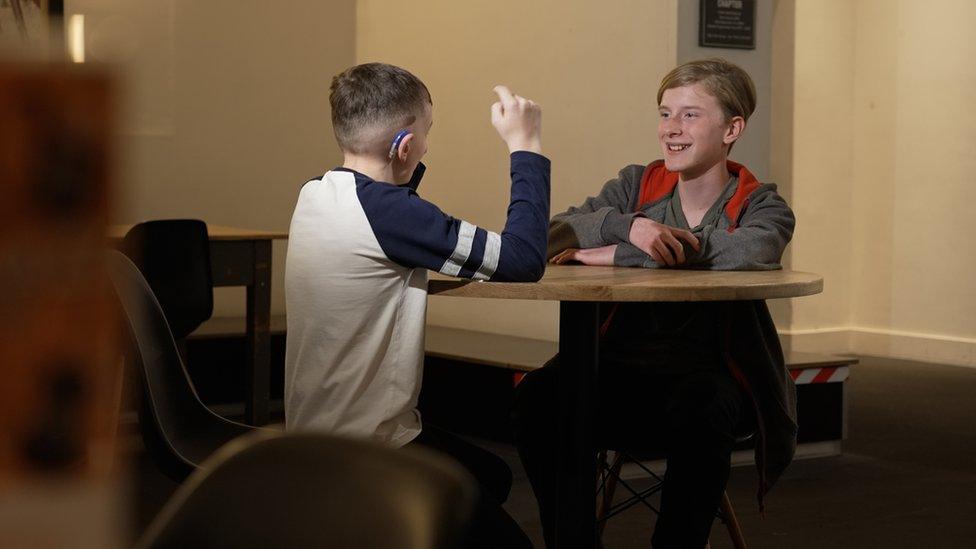
Subtitled screenings
All films now come with a subtitle/caption track but individual cinemas decide if and when they show subtitled versions.
In the week that Dan recorded his report (24-30 October) he looked at one film that he and Morgan wanted to see in the cinema that week in Cardiff.
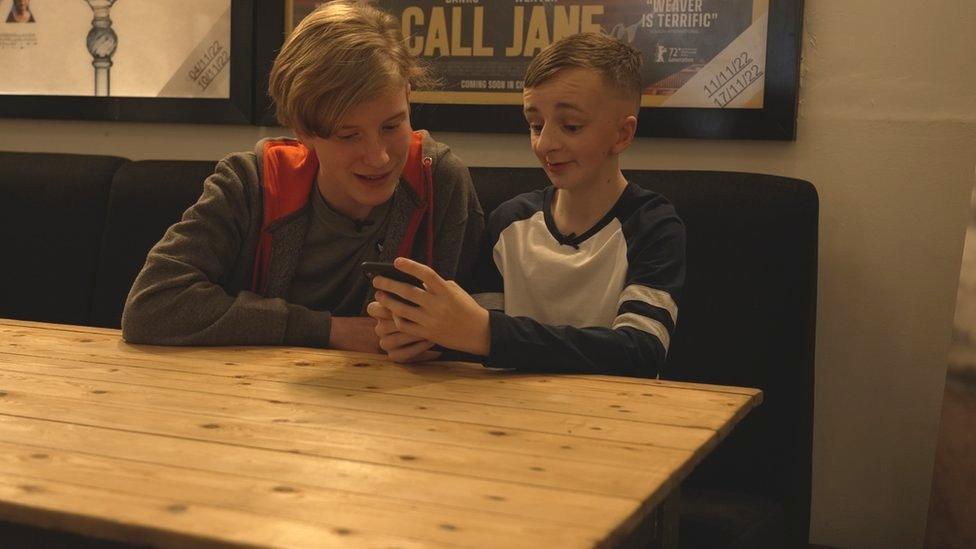
As they are both 13 they chose one of the only films suitable for their age, Marvel's Black Adam.
Of the three big cinemas in Cardiff Vue had 30 screenings Monday to Thursday. Only one had subtitles. Of Cineworld's 64 screenings two were subtitled. Odeon had 76 screenings, with two subtitled screenings neither of which were at the weekend.
What are cinemas doing to makes films deaf-friendly?
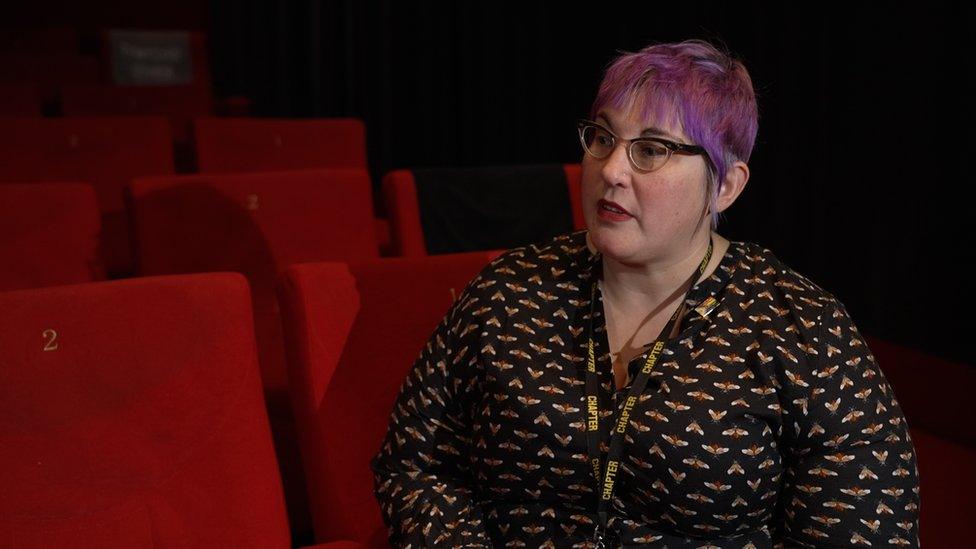
Claire chooses the films at Chapter and is part of the UK Cinema Association
Dan spoke to Claire Vaughan, cinema programmer at Chapter independent cinema in Cardiff. She is also Wales branch chair for the UK Cinema Association (UKCA), which represents cinemas in the UK.
Claire suggests one reason there aren't more subtitled screenings is that whenever there is a film with captions on it fewer people go to the film. This means cinemas get less money from ticket sales.
Claire says there has been some improvement.
"Cinemas are increasing what they are doing...I think it is slowly changing," she told Dan.
She also told Dan that the UKCA were exploring technology, such as glasses with subtitles that appear along the bottom of the lenses, as alternatives to subtitles.
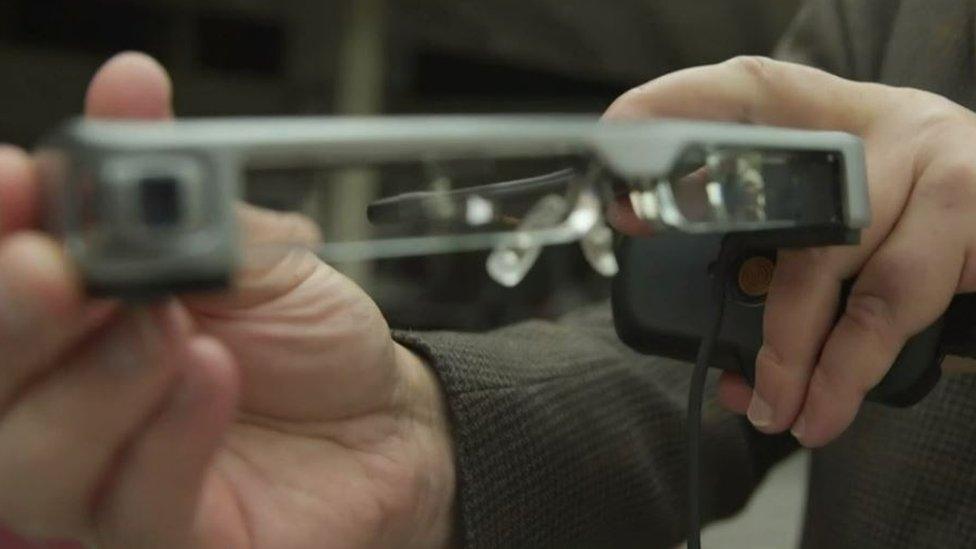
The UK Cinema Association is doing some in-cinema testing of smart caption glasses
These smart caption glasses have been used at the National Theatre in London for the last few years.
The UKCA say they are currently doing in-cinema testing on the glasses and hope to launch them soon.
- Published13 August 2021
